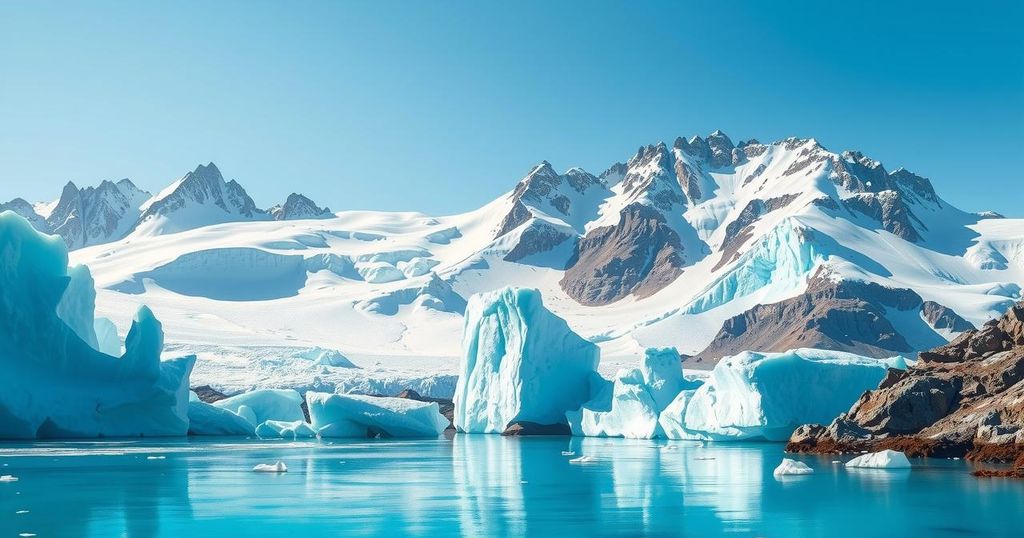World news
ARCTIC, ASIA, CHINA, COPENHAGEN, DENMARK, DONALD TRUMP, EGEDE, EUROPE, EUROPE/ASIA, EUROPEAN COMMISSION, EUROPEAN UNION, GREENLAND, INTERNATIONAL RELATIONS, KINGDOM OF DENMARK, MET, METTE FREDERIKSEN, MEXICO, MUTE EGEDE, NATO, NORTH AMERICA, POLITICS, RUSSIA, TRUMP, U. S, UNITED STATES, US, US PRESIDENTIAL ELECTION, WASHINGTON
David O'Sullivan
0 Comments
Greenland Elections: U.S. Influence, Danish Ties, or Path to Independence?
The upcoming March 11 elections for Greenland’s parliament take center stage amid President Trump’s interest in the territory. Key issues involve potential American alignment, maintaining ties with Denmark, or striving for independence. Although most Greenlanders do not favor U.S. annexation, the elections reflect a critical juncture for the island’s governance and future, particularly concerning economic and cultural independence.
Typically, the elections for the 31-member Inatsisartut, Greenland’s parliament, attract little interest due to the island’s small population of 60,000. However, the attention shifted in January when President Donald Trump expressed interest in acquiring the strategically located territory. This caused concern in Europe, particularly for Denmark, which oversees Greenland’s foreign and monetary policies while the territory governs its domestic affairs.
The upcoming elections on March 11, called by Prime Minister Mute Egede following Trump’s comments, are now under close scrutiny. Major themes have emerged regarding the territory’s future: alignment with the United States, continuation under Danish rule, or pursuing full independence. It is crucial to note that the majority of Greenlanders do not desire American annexation, and none of the five parliamentary parties support this notion.
Despite historical considerations regarding the island’s resources, Greenland continues to assert its autonomy. Danish Prime Minister Mette Frederiksen and Prime Minister Egede have clarified that Greenland is not for sale, emphasizing that the territory’s future lies in the hands of its residents. A new law prohibiting anonymous and foreign donations during the campaign further highlights Greenland’s commitment to maintaining its sovereignty.
The island’s strategic location has attracted foreign interest for centuries, particularly from the United States, which has established a military presence there. In light of global powers like China and Russia being active in the Arctic, Greenland’s resources and potential economic partnerships may draw further attention. Although it may not lead to American sovereignty soon, prospects for trade agreements with Washington remain a possibility.
Greenlanders tend to prioritize heritage and homeland preservation over immediate profits. There are currently two operational mines, and the 2021 elections highlighted public sentiment against extensive oil and gas exploration as well as uranium mining. The political landscape reflects a desire for independence, with three of the five parties advocating for it, including Egede’s left-wing Community of the People party, which is favored to lead again.
However, maintaining living standards remains a priority, and Greenland’s economic stability is largely tied to Denmark. Approximately 50 percent of Greenland’s exports and 60 percent of its imports are linked to the Danish economy. Much of the workforce is employed in the public sector, funded significantly by Danish grants.
Recent pledges from Denmark, including a commitment of 2 billion euros to enhance Arctic defenses, underscore the strategic importance of the region. Conversations are ongoing regarding the process of independence, which entails negotiations with Copenhagen, a successful independence referendum, and approval from the Danish parliament. Pro-independence parties are aiming for a referendum during their four-year term, albeit uncertainties make the 2025 target seem unlikely.
In summary, the context surrounding Greenland’s upcoming elections has broadened to encompass crucial questions regarding sovereignty and international relations. The populace appears divided between independence aspirations and the necessity of maintaining economic stability through continued ties with Denmark. With foreign interests looming, the electoral outcomes will significantly influence Greenland’s path forward amidst its historical quest for autonomy.
Original Source: oilprice.com




Post Comment